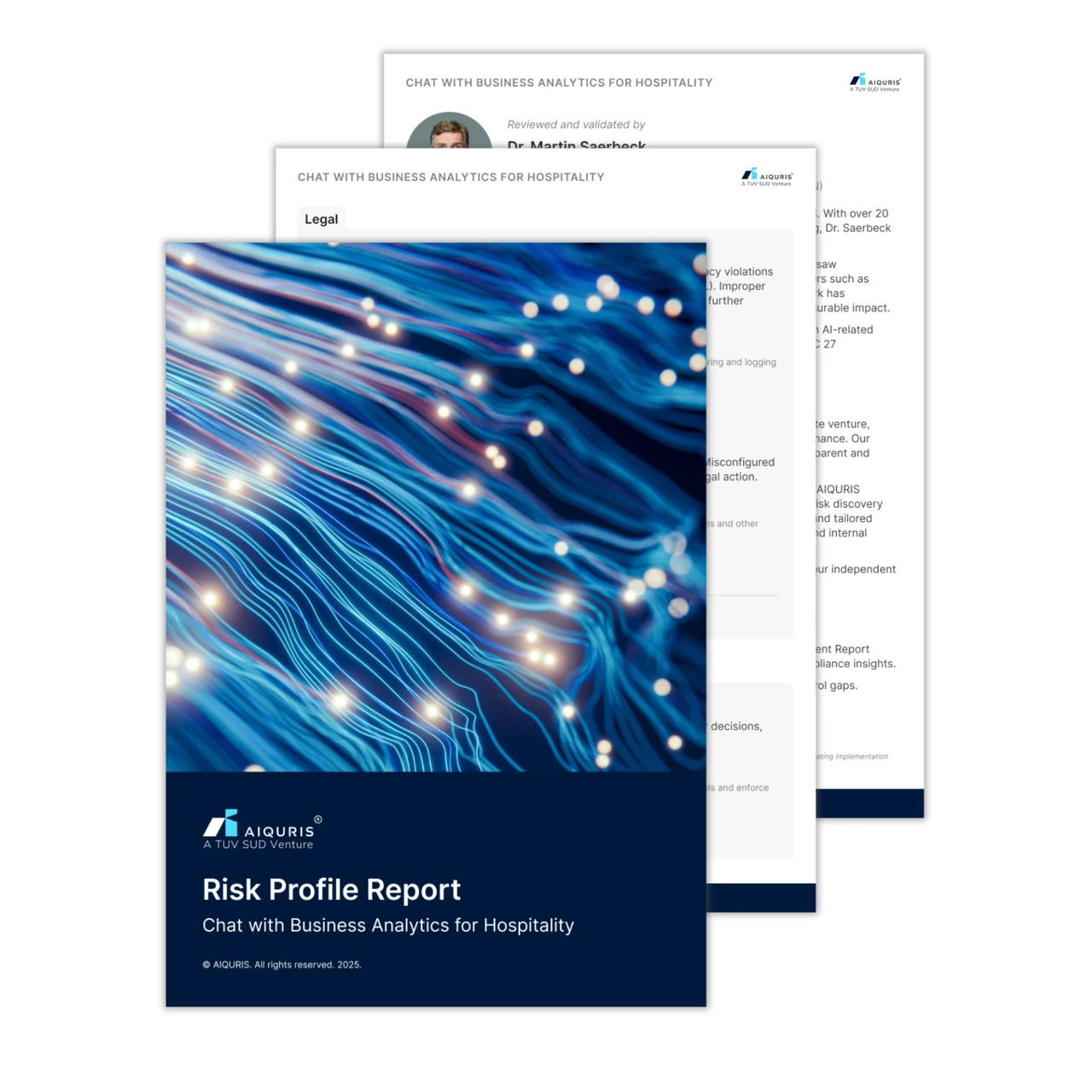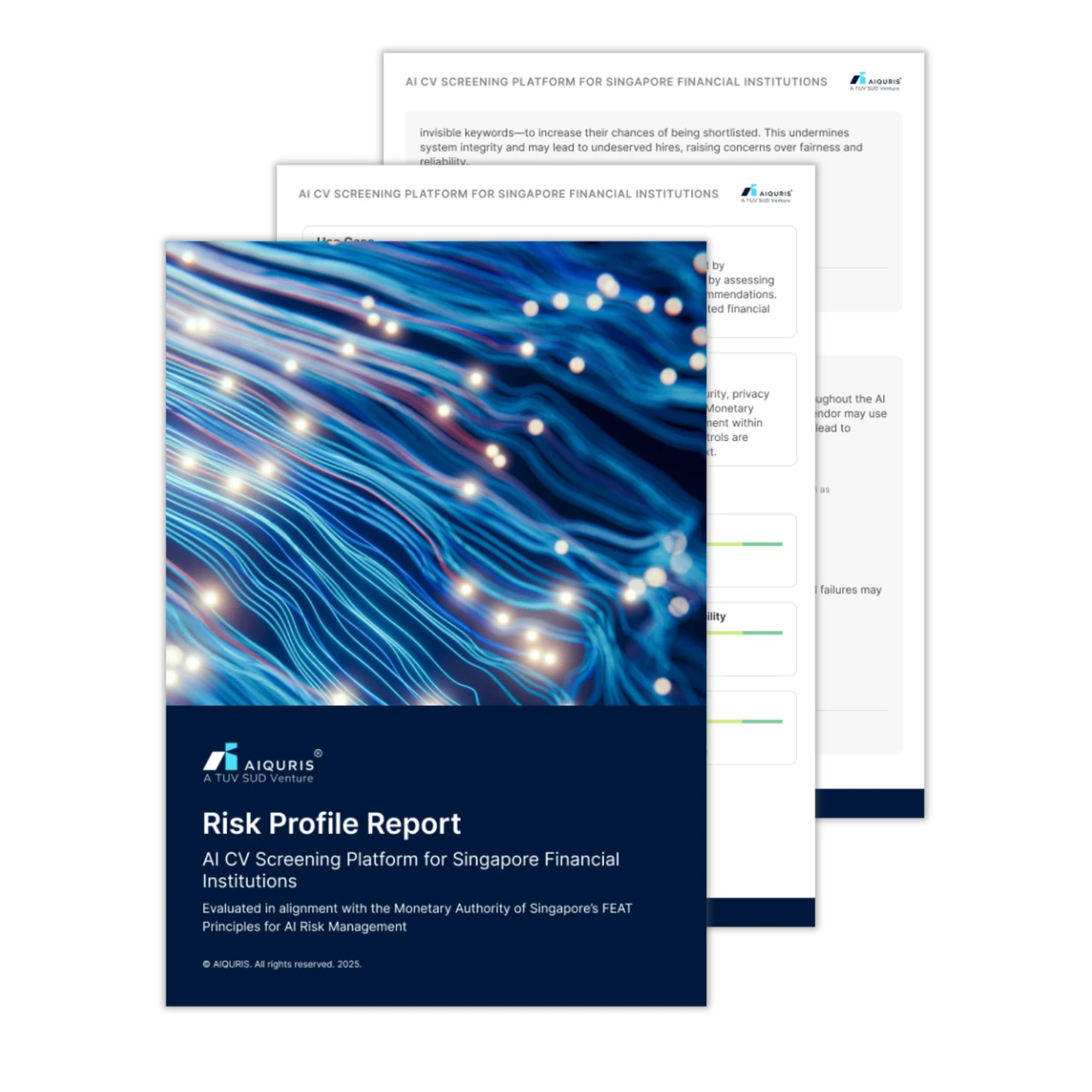Artificial Intelligence (AI) is rapidly transforming industries, economies, and societies worldwide. As we navigate this technological revolution, ensuring that AI systems are developed and deployed responsibly becomes paramount. This entails a robust focus on ethics, governance, and cybersecurity to mitigate potential risks and harness AI's full potential. In a recent podcast discussion between Dr. Martin Saerbeck, CTO and co-founder of AIQURIS, and Raju Chellam, Editor-in-Chief of the AI Ethics & Governance Body of Knowledge, discuss the evolving landscape of AI governance, ethics, and cybersecurity. Their conversation sheds light on the complexities of responsible AI deployment and the role of regulatory frameworks in mitigating risks.
The Imperative for Ethical AI
Ethical considerations in AI revolve around principles such as fairness, transparency, and accountability. AI systems must be designed to avoid biases that could lead to unjust outcomes. For instance, if an AI model is trained on biased data, it may perpetuate existing inequalities, resulting in unfair treatment of individuals or groups1. Ensuring transparency allows users to understand and trust AI decisions, while accountability ensures that developers and organisations are held responsible for the outcomes of their AI systems.
In the United Kingdom, the Information Commissioner's Office (ICO) has provided comprehensive guidance on AI and data protection, emphasising the need for fairness in AI applications. This guidance supports the UK's vision of a pro-innovation approach to AI regulation, balancing technological advancement with individual rights and protections2.
Governance: Striking the Right Balance
AI governance must ensure safety, security, and accountability without stifling innovation. The UK’s framework focuses on safety, fairness, and transparency. However, challenges persist with government agencies citing poor data quality as a barrier, highlighting the need for better infrastructure and expertise.
According to Raju Chellam in the podcast, “One is the need for strong guidelines and guardrails in the development and deployment of AI, if not regulations, at least strong guardrails to ensure that AI is developed and deployed responsibly and ethically. That's number one. Number two, the awareness that AI being such a powerful technology can be used just as effectively by bad actors to steal your identity, to do phishing attacks, cause mass social unrest as well, and to go after vulnerable people such as our children or our parents or our neighbors or ourselves. So these are the two sides, the same coin. One is a need, the other is awareness.“
AIQURIS plays a crucial role in AI governance by offering comprehensive governance maturity assessments, AI risk profiling based on six key pillars, and real-time compliance tracking. By integrating live AI drift monitoring and dynamic regulatory tracking, AIQURIS enables organisations to maintain continuous compliance with evolving AI regulations.
Cybersecurity Risks in the AI Era
AI’s benefits come with cybersecurity threats. Adversarial attacks can mislead AI systems, causing serious risks in healthcare, finance, and automation. The NIST AI Risk Management Framework addresses these challenges3, while Harvard Law research shows that over 40% of companies acknowledge AI’s role in increasing security vulnerabilities4.
As Raju Chellam states in the podcast, “In 2024, Singapore citizens and enterprises lost a total of $1.1 billion, Singapore dollars, to all kinds of scams, including cyber scams, most of them enabled by AI. That compares to 657 million dollars that Singapore companies and residents lost the year before, which is 2023.”
AIQURIS enhances AI security by implementing real-time governance tracking, risk-adjusted thresholds, and ethical audit trails. By continuously monitoring AI systems and documenting risk mitigation strategies, AIQURIS ensures that enterprises can confidently deploy AI solutions while minimising vulnerabilities.
Moving Forward: Recommendations for Responsible AI
To navigate the future of AI responsibly, stakeholders should consider the following recommendations:
- Invest in Ethical AI Research: Prioritise research that focuses on developing AI systems aligned with ethical principles, ensuring they serve humanity positively.
- Enhance Regulatory Frameworks: Governments should collaborate with industry experts, ethicists, and the public to create regulations that promote innovation while safeguarding against potential harms. By aligning with global standards such as the EU AI Act or Singapore’s Model AI Governance Framework, regulatory frameworks can ensure ethical AI deployment while fostering trust and accountability across industries.
- Promote Transparency: Organisations should be transparent about their AI systems' capabilities and limitations, fostering trust and understanding among users.
- Strengthen Cybersecurity Measures: Implement robust cybersecurity protocols to protect AI systems from adversarial attacks and data breaches.
- Educate and Upskill Workforce: Address the digital skills gap by providing education and training programmes focused on AI and cybersecurity, ensuring a workforce capable of managing and mitigating AI-related risk.
By embracing these recommendations, we can work towards a future where AI technologies are developed and deployed responsibly, maximising their benefits while minimising associated risks.
The Role of AIQURIS in Responsible AI
The future of AI is exciting but fraught with ethical, governance, and cybersecurity challenges. AIQURIS plays a critical role in ensuring responsible AI adoption by providing governance, compliance, and risk mitigation strategies. Through AIQURIS’s structured methodologies, including AI governance benchmarking, AI audit trails, and risk-adjusted compliance tracking, enterprises gain the tools to maintain ethical AI deployment. With its AI risk profiling, governance assessments, and regulatory tracking capabilities, AIQURIS enables organisations to deploy AI with confidence, ensuring alignment with global regulations, including the UK, EU, and Singapore.
Additionally, AIQURIS facilitates AI adoption agreements, ensuring structured governance for ethical AI implementation. By establishing clear compliance frameworks and ethical safeguards, organisations can confidently integrate AI technologies while maintaining transparency and regulatory alignment.
As AI adoption accelerates, responsible AI governance must be a priority for organisations seeking to balance innovation with risk management. Leaders must integrate ethics, governance, and cybersecurity measures to ensure AI systems are trustworthy, transparent, and aligned with regulatory expectations.
Want to explore how AIQURIS can streamline your AI governance strategy? Contact us today to discover how our AI risk and quality management solutions can help you deploy AI with confidence.
Watch the full podcast on Youtube today.






